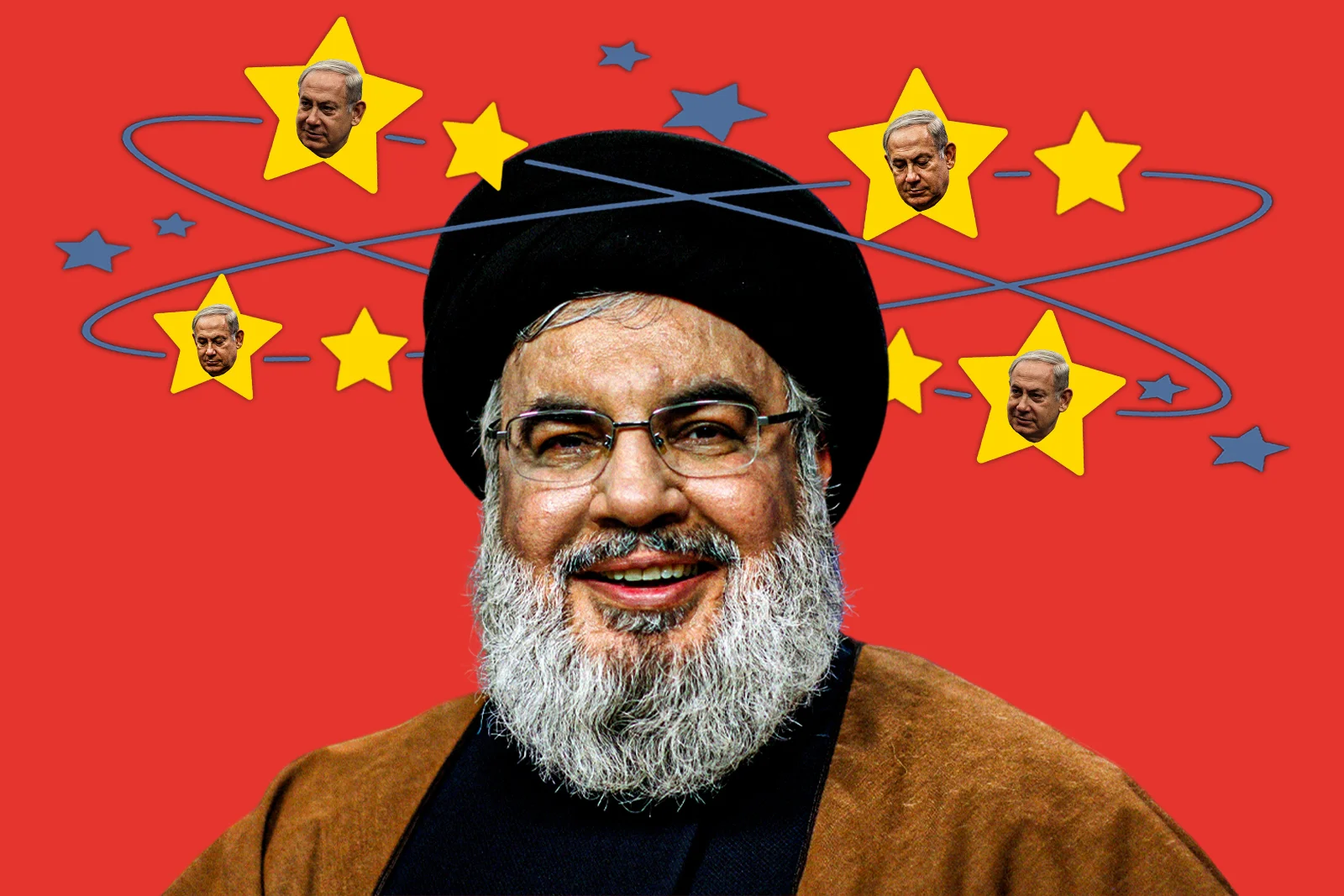
Why a Regional Conflict Between Israel and Hezbollah is Preventable
There are growing concerns that the conflict between Israel and Hamas could escalate into a broader regional conflagration, especially after the unprecedented targeting of Hezbollah operatives through explosives detonated in their pagers. In the past year, there have been several skirmishes between Israel and Hezbollah along the border, but these confrontations were largely contained within established rules of engagement. However, if Lebanon becomes the focal point and this simmering tension turns into a full-scale war, the consequences could reverberate far beyond the Middle East.
The scenario for escalation is not difficult to imagine. With Hamas significantly weakened and the conflict in Gaza devolving into brutal urban warfare, Israel might feel emboldened to shift its focus toward Hezbollah. Prime Minister Benjamin Netanyahu could argue that neutralizing Hezbollah is essential for Israel’s security, with a long-term aim of establishing an “Abrahamic Alliance,” reframing the conflict as a struggle between Iran and Israel and, implicitly, between Iran and the United States.
Former Defense Minister Benny Gantz, speaking at a Middle East forum in Washington, underscored this potential pivot: “We have enough forces to deal with Gaza, and we should concentrate on what is happening in the north. Tehran and its proxy groups are the real issue.” For Israel, the objective would be to secure tacit approval from the West to weaken Hezbollah decisively. From a Western perspective—and even from the standpoint of some Middle Eastern states—there is a strategic rationale here. Hezbollah represents the most formidable military force opposing Israel in the region, and hawks see an opportunity to debilitate it, just as Hamas has been weakened in Gaza.
Iran’s broader strategy has been to surround Israel with a network of militias—mainly but not exclusively Shiite—now commonly referred to as the ‘Axis of Resistance.’ This group includes the Syrian government and decentralized non-state actors such as Iraqi Shiite militias, Hezbollah, Hamas, and the Houthis. Much like NATO’s Article 5, an attack on one is perceived as an attack on all.
Since the onset of the Gaza conflict, there have been multiple interventions by these groups. The Houthis have been disrupting Red Sea shipping routes, targeting nations perceived as supporters of Israel. From within Lebanon, Hezbollah has launched rockets and projectiles across the border, engaging Northern Israeli forces and diverting the IDF’s focus from its operations against Hamas in Gaza.
The stakes are undeniably high, but a regional conflict is not inevitable. Iran seeks to project power and safeguard its interests in Iraq, Lebanon, Syria, and Yemen. Still, it has no desire for a direct confrontation with Israel that could diminish its influence.
So, what can be done to prevent escalation?
Three critical steps are essential for all involved parties to forestall a regional conflict. First, the Israel-Hamas conflict must be disentangled from the Israel-Hezbollah conflict. While Hezbollah and Hamas may share ideological goals and operational ties, their respective conflicts must be addressed separately. Hezbollah should be encouraged to channel its energies towards a peaceful political resolution. Suppose Hezbollah, either deliberately or through miscalculation, drags Lebanon into a new war. In that case, it risks fighting on multiple fronts and alienating its domestic base—potentially losing support from Sunni, Christian, and Druze communities. A war on Lebanese soil would yield no gains and only bring devastation to the home front.
Second, any ceasefire in Gaza must be contingent upon a cessation of hostilities in Lebanon. Without this, Israel could leverage a ceasefire in Gaza to recover its remaining hostages and then shift its military focus to Hezbollah, secure in the knowledge that it would be fighting on only one front. A comprehensive ceasefire could be achieved if both Israeli settlers in the north and Lebanese residents in the south could safely return to their homes.
The agreement might involve returning to Lebanon some of the territories captured by Israel in the 2006 war. Both parties could seek to implement some of the workable elements of UN Resolution 1701, which remains relevant and applicable. Under such an agreement, Hezbollah would not be required to retreat behind the Litani River, thereby addressing a significant point of contention.
Third, all parties championing the Gaza ceasefire talks must play a more proactive role in debriefing the status of negotiations, particularly with regard to the positions adopted by the warring factions. There is a risk that regional actors like Hezbollah, the Houthis, and Iraqi PMUs could receive a skewed version of events from Hamas, which may have an interest in diverting attention away from its own negotiating stance and inflaming regional tensions. A one-sided narrative could easily stoke a broader conflict. The involvement of neutral parties, such as Qatar, in providing balanced debriefings is crucial and must continue to prevent the spread of misinformation.
A regional conflict is in no one’s interest.
For Hezbollah, engaging in a full-scale conflict with Israel would not only jeopardize its military infrastructure but also alienate large segments of the Lebanese population. While Hezbollah enjoys support as a defensive force, there is little appetite among the Lebanese for an offensive war that could devastate the country.
For Iran, a wider conflict would jeopardize the influence it has painstakingly built over the past two decades in Lebanon and other parts of the region. Israel cannot be defeated in a conventional sense, so what would Iran stand to gain? Allowing Lebanon to become a failed state would undermine Iran’s regional strategy, forcing it to fall back on less sophisticated, more predictable tactics that would be easier for adversaries to counter.
For Israel, while the temptation to weaken Hezbollah is understandable, the potential costs of such a move are enormous. A broader regional war would destabilize Israel’s northern border and place immense strain on its military and civilian populations. There is also the danger of Lebanon descending into chaos, similar to Syria’s fate, which could create a power vacuum that Russia might exploit to expand its influence in the region. Such an outcome would be a significant setback for the United States, which would likely be hesitant to support Israel in such an expansive operation.
If Israel attempts to dismantle Hezbollah, Iran would almost certainly feel compelled to intervene, potentially dragging in Syria, Iraq, and Yemen. The ramifications for the hundreds of thousands of foreign nationals in these countries would be severe. A single misstep could even pull in Jordan or the UAE through the Abraham Accords.
The only viable path forward is diplomacy. With so many potential downsides for all regional actors, the opportunity to de-escalate must be seized. A regional conflict would benefit no one; it can and must be prevented. It is imperative that the international community commits its full resources and diplomatic efforts to achieve this goal.
